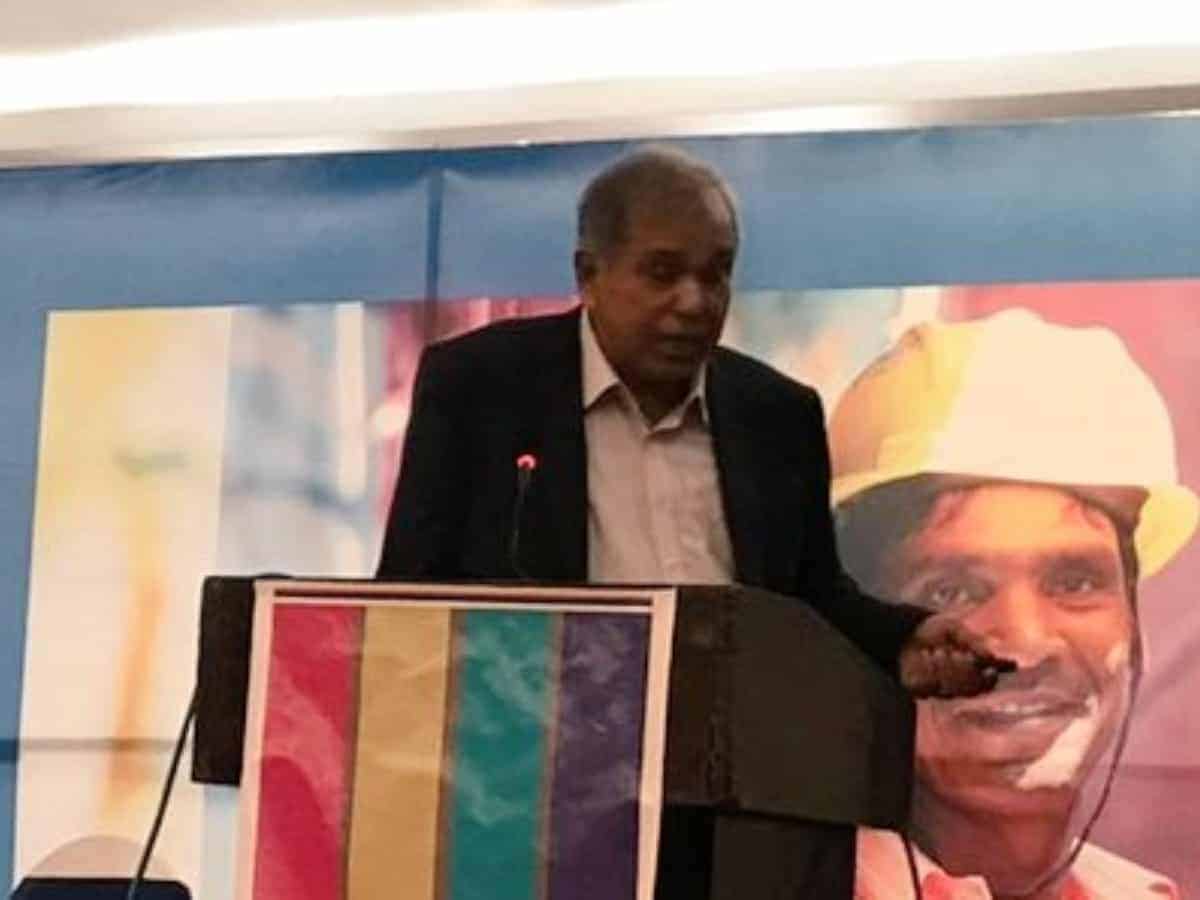Hyderabad: With mainstream media perpetuating negative stereotypes about Muslims’ treatment of women and their overall conditions, Prof Amitabh Kundu’s presentation was a breath of fresh air. That too, with Syed Jaleel Ahmed, President of the All India Majlis-e-Tamir-e-Millat, stating that a campaign is underway to demonize the Indian Muslim population in his introductory remarks.
The chairperson of the Post-Sachar Evaluation Committee delivered the 14th Annual Khaleelelullah Hussaini Memorial Lecture titled “The Socio-economic Inequalities and the Current Challenges for Indian Muslims.”
He started on a high note by quoting Asian Development and Brookings Institution reports that extolled the economic potential of Asia and, especially India. However, Kundu quickly clarified that these reports assume that there is equal labour participation and overall equity among the diverse communities within the country.
During his presentation, he evaluated the different levels of economic well-being and economic progress over time of Muslims compared to many other socio-religious groups. Be it upper as well as lower caste Hindus or even Christians, Muslims surprisingly fared better in certain areas. “Access for Muslims to health care within government facilities regarding supplementary food, medical checkups are subpar, and nutrition but overall health outcomes are better. Part of this is because they tend to have toilets in their households.”
What stood apart among all these statistical evaluations was the fact that a Muslim woman lives a year and a half longer than the upper-caste Hindu one. Although he did clarify that such a reality doesn’t negate the discrimination faced by Muslim women in the household. However, he mentioned that, “There is more emphasis on medical care and attention in their [Muslim’s] households.”
He also elaborated on one effect of the impending National Population Register in that it will affect migration from rural to urban areas, which is where Muslims are concentrated. This in turn will make the 2021 census difficult to carry out.
Kundu also singled out the lack of access to basic housing and infrastructure facilities that only further the exclusion and inequality that Muslims face in metropolitan cities. “The Waqf property can help alleviate such disparities by helping out with housing,” he
added.
Prof Shaban substantiated the perspective presented by Kundu while Prof Amir Ullah Khan pointed out that the Muslim community is flux following the enactment of CAA and the hanging sword of NRC. These factors have unsettled the community and instead of worrying about bettering the lifestyle it is pushed to think only about the enumerators who might declare its Indian identity suspect.
Tameer-e-Millat President Jaleel Ahmad underscored the fact the community has to fully grasp the change sweeping across the country and get ready for the future which appears to becoming uncertain.

